Thoughts from Dawn Wallace
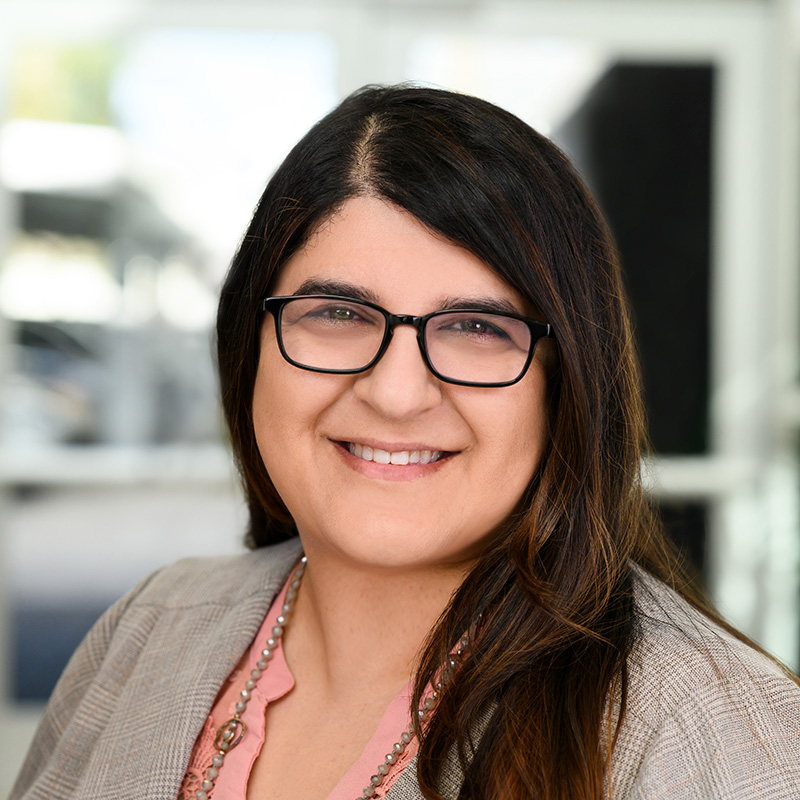
Technology becomes entrenched in our lives so quickly that it is sometimes hard to recall a world without even a recent change. Today, it’s unrealistic and unimaginable to think we could live a day outside the digital age. We live more comfortable lives owing to innovations that have helped us manage daily burdens, revolutionized medical research and innovation, enhanced educational delivery and instruction, and enabled next-level global communication and connectivity with each other.
When is the price too much for our humanity to pay for these modern goods? Beyond the known physical and health concerns—particularly for youth—no one can dispute that technology has fundamentally altered our perspective on privacy and security. We are more vulnerable than ever to soulless internet predators who have no compunction about stealing what is not theirs, or even more disturbing behaviors that threaten our safety. While I mourn the fact we have lost control of our ability to keep our lives private, I’m equally forlorn that we have succumbed to a cultural transformation that does not see privacy as a valued commodity.
Another emerging concern is artificial intelligence. In short, AIs are highly-evolved, intelligent and adaptive technologies that can perform tasks without human intervention. Last week, Bill Gates called AI as important as the graphical user interface, the internet, and mobile phones. We collectively benefit from how these tools improve Google Maps, fraud detection, digital assistants, and more, but their capacity is suddenly leaping ahead.
Yesterday, I spent two hours with ChatGPT. My new friend helped develop new potential questions for the Flinn-Brown Selection Committee, wrote three paragraphs on the importance of the Magna Carta to modern civil rights, crafted a children’s poem about a bunny named Benny, and gave me tips on how I can manage an entitled teenager.
As I was awed by its brillance, I kept hearing “Danger, Will Robinson.” (Yes, I see the irony there.) On one level, the capabilities of ChatGPT seem not much different from the five Alexas in my house, or the Siri I use every day, until I think about its purpose—whether its evolution is intended and/or used to augment or replace the capability to learn through independent thought and means. Will we be able to identify the subtle bias of its creators or recognize it as a potential tool for propaganda? Will its creators even be able to understand the biases it adopts? Or more fatalistically, will AI eventually replace the self-determination of our human condition (i.e. the robots take over)?
Obviously, the history of mankind is wrought with ethical decisions on how to manage mutations of the good. I’m certainly not suggesting we inhibit creative invention and progress, but we should enter the next technological age with our eyes wide open.
Attention Northern Arizona Fellows
Joanne Keene (Sedona, 2016) is organizing a Northern Arizona Flinn-Brown Happy Hour for Thursday, April 13. Watch your email for an invitation from Joanne with further details, but mark your calendars now!
If you’d like to organize happy hours for Fellows in your region, please let me know. I’m happy to help connect you.
Fellows in Higher Ed
Last month we published a list of Fellows in local government, and a list of Fellows in state government the month prior. Each month we will feature a Fellows list for a specific employment sector, public policy area, or affinity group. This month we feature Fellows in higher education.
While we try very hard to keep up to date on Fellows’ activities, we recognize that we may have missed someone. Please let us know and we will happily update the list.
Best,
Dawn
Upcoming CivEx
Please join us for our next CivEx on Wednesday, April 19 at 2:30 p.m. Registration and additional details coming soon.
If you have an idea for a CivEx you would like to host, or a topic you would like to learn more about, contact Dawn or Jennifer.
Save the Date
We are excited to share that the 2023 Flinn-Brown Convention will be held on Friday, November 3. If you would like to participate on the planning committee, let us know.We also invite sponsorship opportunities to help provide a high-quality, professional learning experience. Convention sponsors may showcase their support through presentation, reception, and breakout sponsorships, including prominent logo display, brand recognition through social media, and recognition on the event website and program. To find out more about sponsorships, contact Dawn or Jennifer.
Fellows Book Recommendations
Each month, we feature suggestions from Fellows to create a virtual Network library about public-policy issues, the practice of leadership, professional development, and other areas worth sharing. This month’s recommendation comes from John Garcia III (Washington, D.C., 2012) and Avery Xola (Queen Creek, 2022).
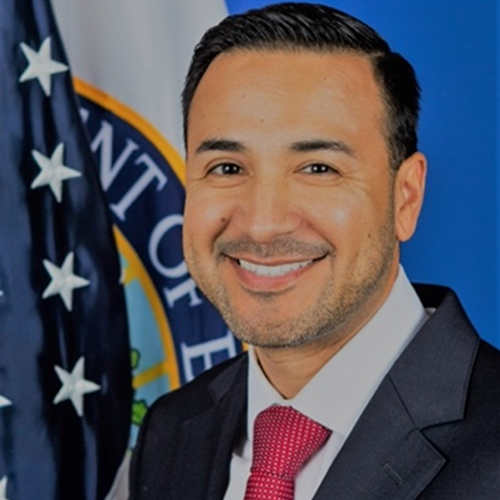
(Washington, D.C., 2012)
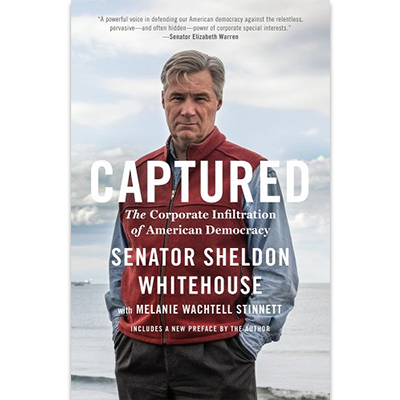
by U.S. Senator
Sheldon Whitehouse
John Garcia III: There are so many books that have influenced me. I’m a big nonfiction reader, and you may have gathered that I’m particularly interested in issues of economic inequality. Since I’m currently at a federal agency, I think a book that would help folks understand the importance of federal regulatory authority is “Captured” by U.S. Senator Sheldon Whitehouse. The book is several years old, but it gives a thorough account of how corporate special interests have found ways to capture administrative agencies meant to regulate corporate behavior.
Regardless of your politics, I think you’ll learn a lot about how lobbyists and special interests have influenced the regulatory authority of the federal government over decades. You may disagree with this thesis, but I guarantee you’ll come away with a lot more knowledge of how agencies work.
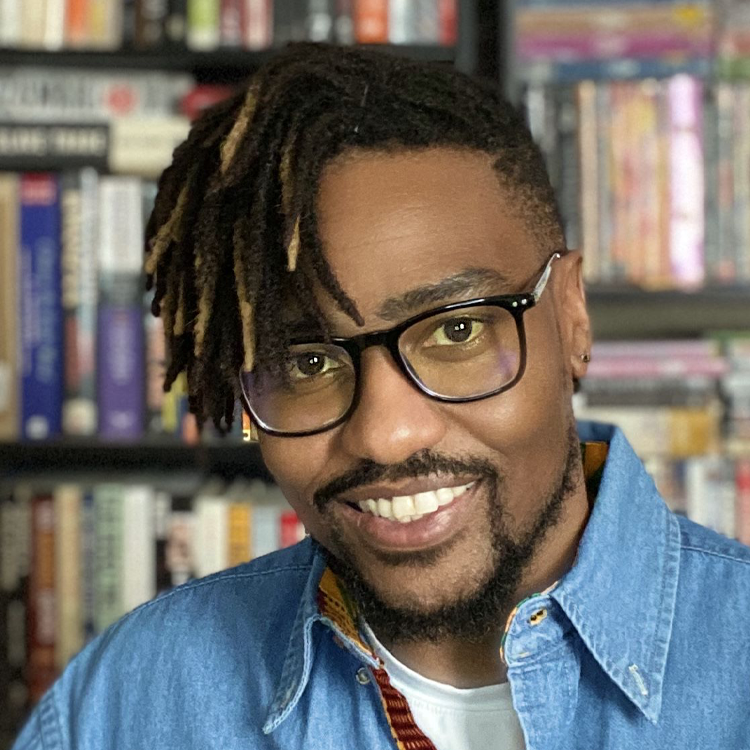
(Queen Creek, 2022)
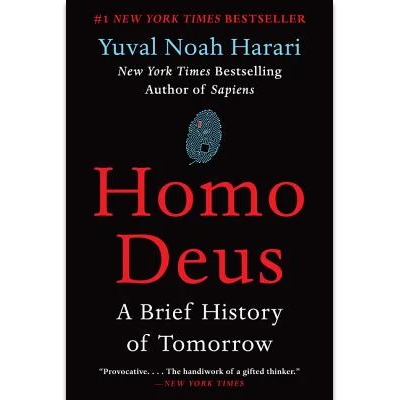
by Yuval Noah Harari
Avery Xola: I recommend Homo Deus by Yuval Noah Harari because he talks about how the human experience is improving because of technology and education, but also cautions about how humanity could take steps backwards by not understanding history. If you enjoy history and/or consider yourself a futurist then this book is a must read.
Fellows Spotlight

John Garcia III
(Washington, D.C., 2012)
Senior Advisor
United States Department of Education
1. Can you please describe your work and how public policy impacts how you manage your organization?
I’m currently a senior advisor in the Office of Policy, Evaluation and Planning at the U.S. Department of Education in Washington, D.C. In my office, we ensure alignment across the department with the secretary’s priorities, using evidence-based approaches to inform the budget, regulations, and grants design, among other items.
My work is primarily focused on strengthening pathways from K-12 to postsecondary and in-demand careers as part of the Unlocking Career Success Initiative, in partnership with the Department of Commerce and Department of Labor. I also work on postsecondary completion, the College Scorecard and Community College Success as part of my portfolio. This work is incredibly important to the Biden-Harris administration as we work to transform our economy through implementation of the Bipartisan Infrastructure Law, CHIPs and the Inflation Reduction Act. A core part of that work will require preparing the future workforce by strengthening education to workforce pathways that lead to high-quality jobs, inclusive regional economic development, improved global competitiveness and stronger national security.
I believe public policy will have a profound impact on how we shape the world for future generations. I left a career in business, working at Intel and Jet Propulsion Labs, in order to improve the economic opportunities of our youth through education. As my career has progressed, I’ve been fortunate to have worked in public policy at the state, county and federal levels. I’ve seen how hard it is to make change, but I’ve also seen how powerful public policy—in all its forms—can change the life trajectory for millions of people. I do believe that we need to fundamentally transform our economic system so that it works for those who have been left out of opportunity. I see how hard it is for people to escape poverty, to afford homes and to feel that their children will have a better life than theirs. I hope to continue to work on policies that will give people hope for the future by supporting working families, equity and opportunity as my career moves forward.
2. Do you have a favorite quote that is meaningful to you?
“To dare is to lose one’s foot momentarily. Not to dare is to lose oneself.”
Soren Kierkegaard
This particular quote really exemplifies the approach I’ve taken to try new risks and seek out new challenges. I began my education at Phoenix College and eventually ended up with a doctorate from Harvard. Without daring to dream, I never would have applied. And without continuing to take on new goals and ambitions, I never would have been appointed to the Biden Administration. All of those new experiences required me to lose my footing, in a sense, because I had to go somewhere new, learn something new, and find ways to be successful. If I wouldn’t have dared myself to do those things, I wouldn’t be the person I am today or have the experiences and knowledge that I have that allows me to do the work that I do.
3. How has the Fellows Network been useful to you?
I was in one of the early cohorts, I believe the third overall. Although I’ve lost touch with some folks, I continue to engage with them through social media. I’ve also made great connections with Fellows through the larger Network convenings. Some of those Fellows that I’ve been able to meet are also working in the Biden Administration at other agencies. In addition, the Network has helped me engage in Arizona civic issues even though I’ve been living in D.C. I’ve been able to reach out to other Fellows to stay engaged in Arizona politics and issues, advice for careers and to generally keep in touch with what’s happening in my hometown. Once my time in D.C. is done, I know the Network will be a great resource when, and if, I decide to return to Arizona.
4. What do you see as potential opportunities strengthening civic health in Arizona?
I think the whole reason for Flinn-Brown to exist is to create connections and common understanding among civic leaders in Arizona. I believe that is the approach we need to find common ground and understanding as we move forward in the state. It’s a model that the state legislature, state leaders, and community advocates can follow to make sure they’re focused on what is good for Arizonans. Civic leaders can really set the tone if they can find items to compromise on that benefit everyone. For too long there’s been a combative approach that sees the other side as the enemy. We need to find ways to reward those who can compromise, particularly on kitchen table issues that actually improve the lives of working-class Arizonans. I’d like to see more creative solutions to find, fund and support candidates that will take this approach. I’d also like to see advocates find a particular set of policies they can move forward in this manner.
Most importantly, there need to be strong ways to communicate how “people-first policies” and compromise are good for all Arizonans. We need messages that find ways to unite us around the issues that will truly make Arizona a place of opportunity for everyone.
If you missed a Fellows Spotlight, you can view them on the Arizona Center for Civic Leadership website now.
Fellows In The News
We are happy to promote your work through social media, so reach out if you would like us to recognize a professional accomplishment, event, or program with which you are involved.
Alexandra Arboleda (Phoenix, 2018) wrote an op-ed in the Arizona Republic about Colorado River water cuts.
Treasurer Sarah Benatar (Flagstaff, 2015) was featured in an Arizona Daily Sun article about the potential impact of anti-ESG bills.
Mayor Mila Besich (Superior, 2019) is a member of U.S. Senator Kyrsten Sinema’s new statewide Rural Development Working Group. Besich and Julie Euber (Tucson, 2022) were also interviewed for an ASU News article about the Lodestar Center for Philanthropy and Nonprofit Innovation’s efforts to help build nonprofit and philanthropic capacity in Superior and rural communities across the state.
Quintin Boyce (Chandler, 2020) was a keynote speaker at the 2023 School Connect summit.
Jaclyn Boyes (Phoenix, 2019) was promoted to regional senior vice president, west at Per Scholas.
Councilwoman Tammy Caputi (Scottsdale, 2019) wrote a guest commentary in the Daily Independent about the increased cost of the Scottsdale fire-training facility.
Congressman Juan Ciscomani (Tucson, 2011) was interviewed for a KGUN9 news story about H.R. 1378, which would reduce wait times for Veterans Administration disability claims to be processed. He was also quoted in an article in The Center Square about the Chiricahua National Park Act, which would make Chiricahua National Monument a new national park.
Demion Clinco (Tucson, 2013) wrote an opinion piece in Arizona Daily Star in support of implementing a zero-fare public transit system in Tucson.
Mayor Becky Daggett (Flagstaff, 2014) wrote an op-ed in Flagstaff Business News regarding federal and state legislation that impacts the city of Flagstaff.
Dave Engelthaler (Flagstaff, 2022) wrote an op-ed for the Arizona Daily Sun promoting civility.
Pele Peacock Fischer (Phoenix, 2013) and Sara Presler (Mesa, 2011) were recognized as 30 of the most powerful women in the Arizona cannabis industry.
Rep. Matt Gress (Phoenix, 2015) was quoted in a KJZZ article about HB 2428, which would expand the Arizona Teachers Academy to private universities. He was also quoted in an article in The Center Square about HB2800, which would increase Arizona teacher pay by $10,000.
James LaBar (North Carolina, 2012) was interviewed about recent business closures and developments in Charlotte, North Carolina’s South End neighborhood.
Shane Leonard (Coolidge, 2019) was quoted in an AZ Mirror article about HB 2212, which would allow people who tamper with utility infrastructure to be charged with aggravated criminal damage.
Joanne Osborne (Goodyear, 2012) was appointed to the Maricopa County Board of Health. Her company, Osborne Jewelers, was also ranked among the top 10 jewelry stores in the state by The Best of Arizona Business.
Paul Perrault (Phoenix, 2016) was interviewed for an ABC15 news story about a recent Helios Education Foundation report showing that one in five Arizona students in elementary school and middle school is considered chronically absent.
Sean Price (Litchfield Park, 2014) is now deputy director at the Arizona Department of Administration.
Marie Raymond (Tempe) provided an update on Tempe’s Memory Café program and how the “dementia friendly” city is providing resources for those impacted by dementia or Alzheimer’s.
Gina Roberts (Scottsdale, 2019) and Avery Xola (Queen Creek, 2022) hosted a civic-engagement webinar for National Civics Learning Week.
Aaron Rottenstein’s (Tucson, 2018) firm, Rottenstein Wealth Management and Consulting, was named on the Forbes Best-In-State Wealth Management Teams list for 2023.
Adelaida Severson (Gilbert, 2020) recently spoke at the annual University of South Carolina Women’s Conference.
Sue Sisley (Scottsdale, 2011) was interviewed for a Daily Independent article about HB 2486 and HB 2489, which would provide $30 million in research funding to study psilocybin mushrooms in treating post-traumatic stress disorder and legalize MDMA to treat PTSD and similar disorders if the Schedule 1 drug restrictions are removed.
Christina Spicer (Phoenix, 2013) was interviewed for an ASU News article about how her master’s degree in nonprofit management prepared her for her leadership role as co-CEO of Girl Scouts of the Arizona Cactus-Pine Council.
Amanda Stone (Tucson, 2015) was promoted to deputy director of the Arizona Department of Environmental Quality.
Rose Winkeler (Flagstaff, 2018) is now a partner for Flagstaff Law Group.
Janelle Wood (Phoenix, 2013) organized a march to the state capitol in support of Empowerment Scholarship Accounts and was quoted in an article in The Lion about support for school choice across demographics.
Dajana Zlaticanin (Phoenix, 2020) is now the director of communications and press secretary for the Arizona Republican Party.
Updates are gathered from conversations, press releases, articles, social media, tipsters, and confessions. Have news to share? Send it to Danielle Underwood.
Board and Commission Openings
Serving on a board or commission is a great way to influence public policy on issues where you have expertise or a passion to serve.
Fellows interested in building skills as a board member may want to contact Board Developer Phoenix for additional information or to learn more about private and nonprofit board service opportunities.
The Governor’s Office is seeking applications for the following boards and commissions:
- School Facilities Board: This Board is responsible for adopting minimum guidelines, assessing school buildings, and providing monies to schools that need to improve facilities to meet the guidelines. There are currently multiple vacancies.
- Arizona Commission on Judicial Conduct: This commission acts on complaints alleging judicial misconduct. There is currently an opening for a public member, who must not be a lawyer or a judge.
The Governor’s Office has over 200 boards and commissions. You can see a full list of current vacancies here. To apply for any vacancy through the Governor’s Office, complete the application on the website.
The city of Flagstaff has vacancies on a variety of boards and commissions, including:
- Board of Adjustment
- Library Board
- Pedestrian Advisory Board
You can see a full list of current vacancies, along with application information, on the city website.
Most Arizona counties and cities have boards and commissions with frequent vacancies. Check local websites for more opportunities. To share specific opportunities, contact Jennifer Papworth.
Career and Professional Opportunities
The Arizona Board of Regents is hiring a director, community engagement.
The Thunderbird School of Management seeks an executive director of engagement.
Health First Foundation Northern Arizona seeks a senior philanthropy officer.
Arizona Sustainability Alliance is hiring a grants and fundraising coordinator to directly support the funding of Arizona Sustainability Alliance through grants and fundraising.
Enterprise Technology at ASU is seeking an executive director, creative and communications to take a diverse slate of organizational activities and services and develop a unified enterprise message.
The Center for the Rights of Abused Children is searching for a constitutional attorney and a staff attorney to join their team.
The BIO5 Institute at the University of Arizona is seeking an experienced director, communications and marketing to join its team.
Contexture is looking to fill the role of vice president, enterprise marketing to oversee development and execution of comprehensive communication, education and marketing plans and strategies.
The City of Phoenix Office of Arts and Culture is hiring a Community Programs & Engagement Manager.
The U.S. Equal Employment Opportunity Commission [EEOC] is seeking a Phoenix District Director to manage planning and direct enforcement activities as well as outreach and educational programs throughout the district.
The National Forest Foundation has an opening for an Arizona Program Manager to support the development and implementation of conservation projects and programs across Arizona’s National Forests.
Deer Valley Unified School District is searching for a Director, Communications and Community Engagement.
Events & Conferences
Venture Café Phoenix connects creators, entrepreneurs, investors, coworkers, students, and visionaries at that flagship program, the Thursday Gathering, to build a strong, inclusive and equitable innovation ecosystem. Check out the schedule of gatherings for April 2023.
The Arizona Chamber of Commerce and Industry’s Annual Update from Capitol Hill Luncheon is Thursday, April 6.
ASU is hosting its 2023 Health Expo on its Tempe campus on Thursday, April 6.
The Bill of Rights Institute is bringing two professional-development seminars for educators to Arizona in April. Plainest Demands of Justice: Dialogues on the African American Experience on April 1 in Phoenix and Being an American: Exploring the Ideals that Unite Us on April 15 in Tucson. The institute will offer 6 professional-development credits for these events.
Registration is open for the Arizona Manufacturers Council’s Summer Policy Institute, relating specifically to environmental policy and sustainability best practices. Speakers and attendees include manufacturers, business leaders, and government officials. The 2023 event will take place Aug. 24-25 in Prescott.